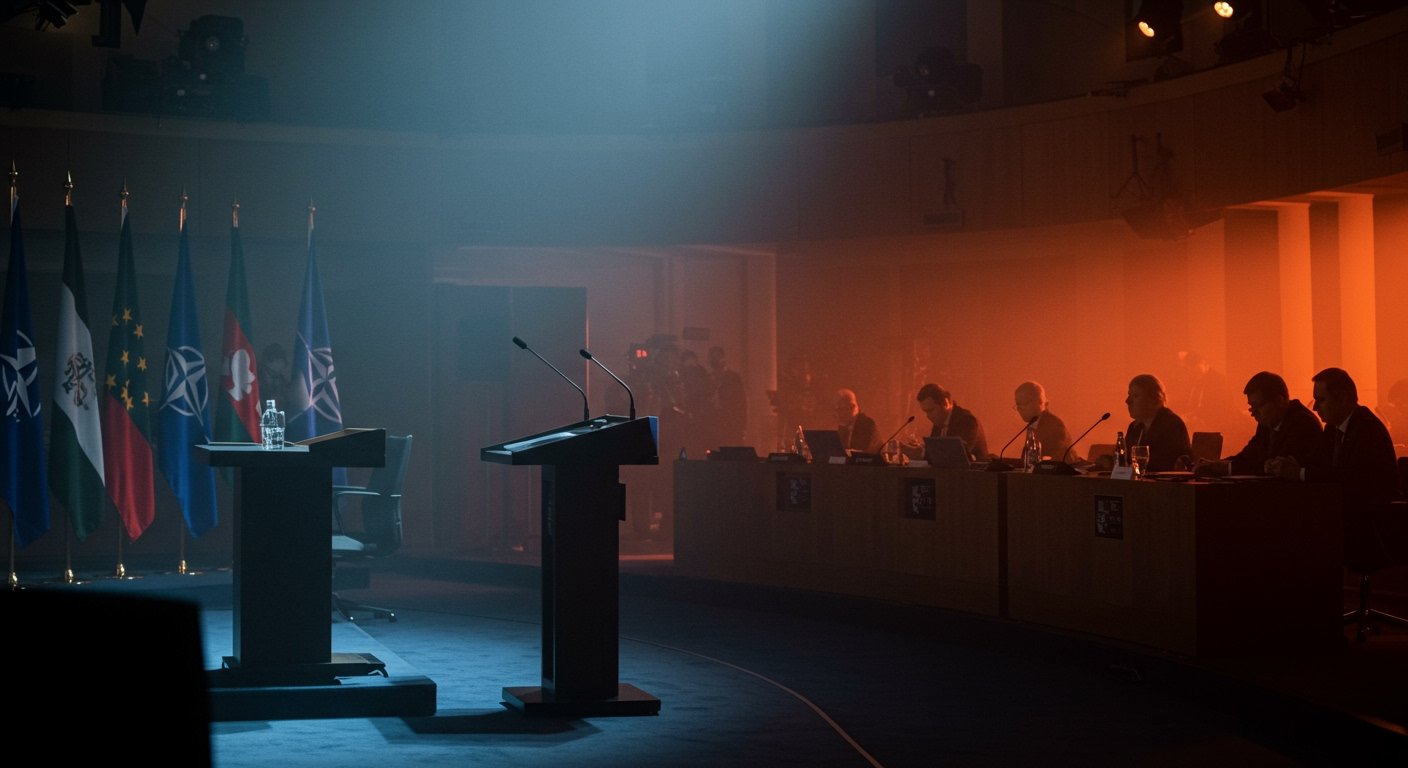THE HAGUE, NETHERLANDS – Against the backdrop of a precarious ceasefire between Israel and Iran, President Donald Trump attended the NATO summit in The Hague on Wednesday, June 25, 2025. The summit agenda was heavily influenced by the volatile situation in the Middle East following a recent 12-day conflict that had claimed over 1,000 lives by June 24, including hundreds of civilians and military personnel, according to reports by Human Rights Activists in Iran [5, 6].
President Trump used a news conference at the summit to address both the regional tensions and his long-standing push for NATO allies to increase their defense spending.
Fragile Truce Holds After Deadly Conflict
A tenuous ceasefire between Israel and Iran appeared to be holding on Wednesday, June 25, 2025. The agreement, brokered by the Trump administration, followed reports that both sides had violated an initial truce agreement just the day before, on Tuesday [6]. The 12-day conflict preceding the ceasefire had resulted in significant casualties, with Human Rights Activists in Iran reporting over 1,000 deaths by June 24, a toll that included hundreds of civilians and military personnel [5, 6].
In a sign of cautious steps towards normalization, the U.S. Embassy in Jerusalem was set to reopen on Wednesday, the same day Ben Gurion International Airport was also resuming operations [6]. Regional dynamics remained complex, with Qatar stating that the Israel-Iran ceasefire had created momentum for long-stalled talks aimed at a deal in Gaza [7].
NATO Defense Spending Takes Center Stage
During his news conference, President Trump reiterated his administration’s focus on burden-sharing within the North Atlantic Treaty Organization. He stated that NATO members are expected to agree to increase their defense spending target to 5% of GDP. This proposed increase represents a significant jump from the current 2% guideline and is a move Trump has consistently advocated for [3, 5].
The proposed target comes with a deadline of 2035 for member states to achieve the 5% threshold. However, concerns remain that some nations, specifically mentioning Spain and Slovakia, may face challenges in meeting this ambitious target within the specified timeframe [3, 5]. NATO Secretary-General Mark Rutte publicly complimented President Trump’s efforts in boosting defense spending among allies [4, 5], acknowledging the administration’s role in pushing for greater financial contributions from member states.
Debate Over Iran Nuclear Program Strikes Lingers
The effectiveness and consequences of the U.S. airstrikes conducted on June 22nd against three Iranian nuclear facilities remained a subject of debate at the summit. The strikes, codenamed “Operation Midnight Hammer,” were intended to significantly impede Iran’s nuclear program [4, 5].
President Trump claimed the program was “completely obliterated” by the strikes and had been set back “decades” [4, 5]. However, initial assessments from intelligence and atomic energy agencies presented a less definitive picture. The U.S. Defense Intelligence Agency (DIA) reportedly suggested a setback of only months [4, 5], while the Israel Atomic Energy Commission assessed the delay to be “many years” [4, 5, 7]. In the wake of the strikes, Iran has indicated its intention to restart its nuclear program [4, 6].
Referencing the complex regional picture, President Trump also expressed optimism regarding progress towards ending the conflict in Gaza, suggesting that the recent strikes on Iran had contributed to this positive development [3, 5]. NATO Secretary-General Rutte’s praise for Trump extended beyond defense spending to include his efforts in the Middle East [4, 5], a sentiment that drew sharp criticism from Iranian Foreign Ministry Spokesman Esmaeil Baqaei [4, 5], underscoring the deep divisions and sensitivities surrounding the recent actions and regional diplomacy.
As the NATO summit continues, the intersection of alliance defense strategy and the volatile security landscape in the Middle East remains at the forefront of discussions, with the fragile Iran-Israel ceasefire and the status of Iran’s nuclear ambitions casting a long shadow over the proceedings in The Hague.





